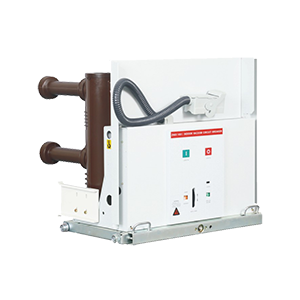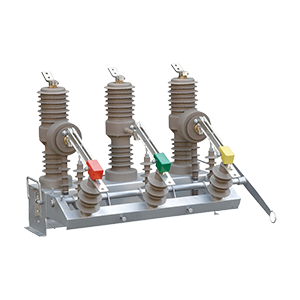PGE seeks funding for Poland's first nuclear power plant
release time:2020-04-11
On April 2nd Wojciech Dabrowski, Chief Executive of PGE , said that the cost of building Poland's first nuclear power plant would be beyond the company's ability to afford on its own. Poland is currently seeking technology suppliers capable of providing 49 per cent of the cost of funding for the project. PGE EJ1, a wholly owned subsidiary of PGE, is leading the effort to build 6911gwe nuclear power capacity between 2040 and 2045. In March 2020, Piotr Naimski, an adviser to the Polish government on strategic energy infrastructure, said the project's first 10-year cost was expected to be as high as 60 billion zlotys ($14.14 billion) , the total cost over 20 years was about 1000 heads, 120 billion zlotys (235.6 heads, $28.28 billion) . In March 2020, Naimski met with U.S. energy officials in Washington, D.C. , where he said Poland was expected to identify potential nuclear partners and sites at the 2021. In November 2018, the Polish government unveiled a draft work plan to combat climate change, with plans to build six new nuclear power plants by 2040, two of them in Arnowiec or Kopalino on the Baltic coast. The six nuclear power plants Poland plans to build are required to inform neighbouring countries of potential environmental risks. Yet Poland has not told any of its neighbours about the plan, except Austria. Whether Poland is flouting international rules is already controversial. Construction of Poland's first nuclear power plant is likely to begin within four years in Zzarnowiec on the Baltic coast, just 150 km from the German border. Germany, a neighbouring country, is unhappy with the failure of Poland to carry out an environmental impact assessment required by international law for the construction of such projects. In a letter to the economy minister in late November 2019, Ur, a member of the German parliament, said Germany had not heard of the Peter Altmaier and was "unable to understand and accept" it. Altmeyer called on the chairman of the German Bundestag's nuclear safety committee to consult with the Polish government within the framework of international law, but so far has received no feedback. In 2024-2043,9 gw of nuclear power is expected to be installed and connected to the grid, with an estimated lifetime of 60 to 80 years, according to the 2043. It is planned that the first nuclear power plants could be put into operation as early as 2033. Poland replaces coal with nuclear power Poland's energy minister said recently that three coal-fired power plants under construction in Poland could be the country's last investment in fossil energy. This means that the European Union's largest eastern European member states will restart nuclear power as an energy transformation path. The United Nations espoo convention, signed in 1991, entitles potentially affected states to request consultations with the project-building state if certain construction projects are likely to damage the environment. For the construction of nuclear power plants, the construction state has the obligation to carry out cross-border environmental impact assessment. But the construction of Poland's nuclear power plant has not been communicated to neighbouring countries. Poland has carried out a strategic environmental impact assessment of the energy strategy 2040, with "no potential environmental impacts on other member states" , said Artursobo, state secretary of the Polish Ministry of National Assets, the results have also been offered to Euractiv. Poland believes that the construction of the six nuclear power plants will not affect neighboring countries. The results of the environmental impact assessment were not submitted to the neighbouring countries as no request for further environmental assessment was received from the German side. This is a different story from that of Curtin Ur, a German MP. In response to Euractiv's request, she wrote that Poland had "deliberately concealed its nuclear power programme" , thus violating international law. Poland is firmly committed to natural gas and nuclear power generation as a strong complement to green electricity. Due to environmental and energy security considerations, the upgrading of old coal-fired power plants is Poland's top political priority. But while accelerating its renewable energy plans, Poland is also pushing for new gas and nuclear power plants to fill the gap. The situation in neighbouring Austria is quite different. Despite its remote location, Austria began a cross-border assessment of Poland's nuclear programme a year ago. The assessment was completed two weeks ago and the Austrian Federal Environment Agency commented on it. The comment raised concerns about Poland's nuclear power project, which is under construction, the lack of clarity on how to deal with radioactive waste and the lack of a response to possible accidents and outside attacks. In addition, there is no international standard for a high-temperature reactor to be built in the nuclear program. The Polish assessment concluded that the construction of nuclear power plants had no impact abroad. However, according to the Austrian Environment Agency, the Polish assessment of the nuclear power plant was not meaningful, as it was based solely on the conclusions of the preliminary environmental assessment of the nuclear programme carried out as early as 2011. Moreover, the assessment of the safety and risks of nuclear power plants has changed in recent years as a result of the Fukushima accident. Poland's Energy Transition Support Fund has been cut by 50% . According to a new EU budget proposal recently released, the EU's planned $2 Billion Transition Fund for Poland will be cut in half, it is a chastisement for countries that have not signed up to the EU's 2050"climate neutral" target. They are now considering whether Germany should also submit a request for consultation, according to the German Economy Ministry's Secretary of State. Curtin Ur, a member of parliament, recently complained to the Economic Commission for Europe, which oversees cross-border environmental impact assessments. She said that during her presidency of the European Council, the German government should "spearhead the European phase-out of nuclear energy and take decisive action at the same time. " But that did not change the fact that Poland could develop nuclear energy. After all, the country currently gets nearly 80 per cent of its energy from coal and faces enormous pressure to cut carbon emissions. Poland is not alone in its support for nuclear power. At an EU summit in December, the Czech Republic, Hungary and France argued for an additional clause in the final declaration that would allow climate neutrality through nuclear energy by 2050. Given the sovereignty of EU member states over their energy mix, each country can decide for itself. Nuclear energy is not part of the EU's new "transition fund" , details of which were recently revealed by Elisa Ferreira, the EU's regional policy commissioner, to the tune of $100bn, the fund is an important part of the fiscal component of the European Green Agreement, which aims to make EU member states climate neutral by 2050. Nuclear investments are not covered by the fund.








